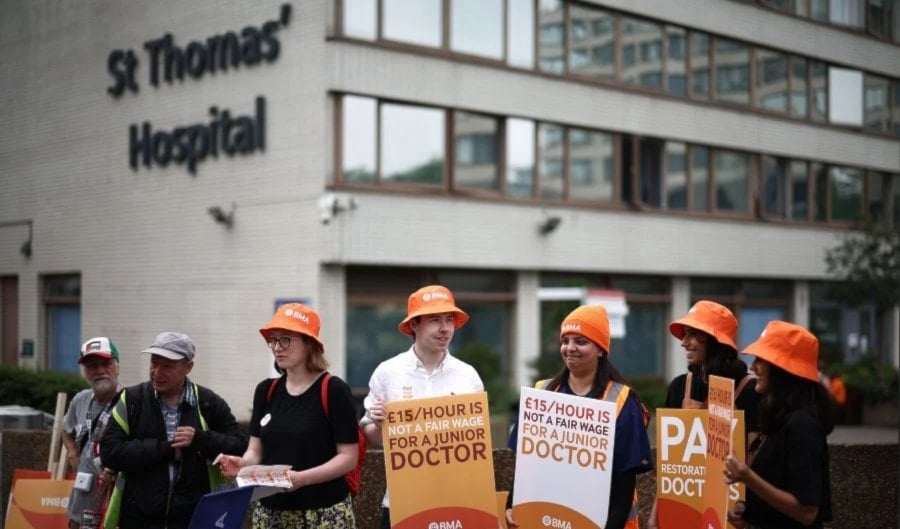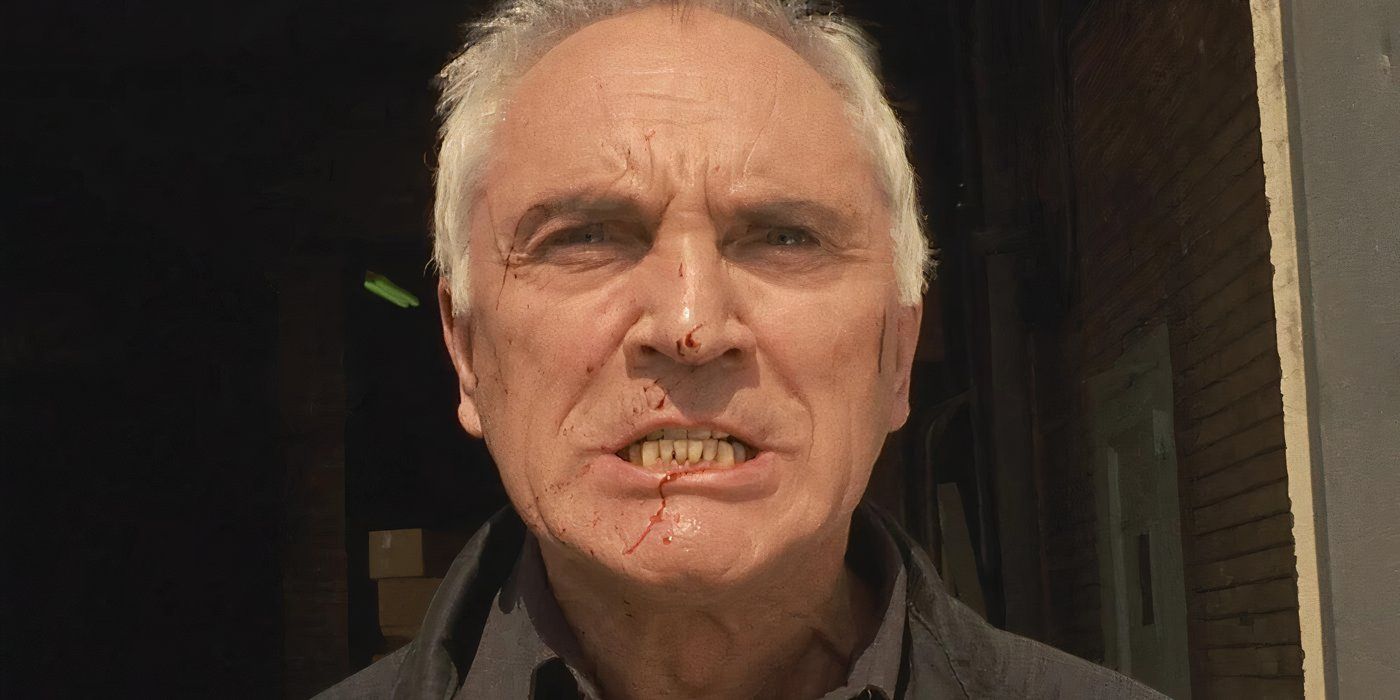England’s hospital doctors strike ahead of general elections

The doctors say they will end the strike if British Prime Minister Rishi Sunak meets their demand for a 35 percent “pay rise.”
-
Assistant doctors in England are striking for pay rises a week before the British general election on June 27, 2024. (AFP)
On Thursday, a week before the British general election, junior doctors in English hospitals began a five-day strike to protest against their underpayment and the state of the publicly funded National Health Service (NHS).
The doctors said they would end the strike if Prime Minister Rishi Sunak agreed to their demand for a 35 percent “pay rise” in light of the current cost of living crisis and high inflation in the country.
The Conservative government has said that the doctors’ demands are unaffordable due to tight public finances. Although Labour’s health spokesman Wes Streeting said that even a potential Labour government would not be able to meet the doctors’ demands, he said there was “room for discussion”.
The NHS is facing significant challenges due to the COVID-19 pandemic, which is causing huge backlogs in the facility’s operations, including delays in surgeries and cancer treatments, lack of resources and long waiting times. These problems have led to constant doctors’ strikes and public discontent.
In a recent survey published in March 2024, which surveyed over 3,000 British citizens, 52% of respondents were dissatisfied with the NHS, while 24% were satisfied with the institution’s services. The satisfaction rate dropped dramatically after the pandemic.
Decline of the British health system
Britain has long been embroiled in conflicts surrounding its health policy. A study by the Institute of Health Equity at University College London revealed the shocking figure of over a million premature deaths in England over the course of a decade.
The study, entitled “Health Inequalities, Lives Cut Short,” attributes this alarming figure to a combination of poverty, austerity measures and the impact of the Covid-19 pandemic.
Between 2011 and 2019, 1,062,334 people died earlier than they would have if they had lived in areas home to the richest 10% of the population. In addition, the study reported 151,615 premature deaths in 2020, with a significant increase due to the COVID-19 pandemic.
Professor Peter Goldblatt, the author of the study, has directly linked 148,000 deaths to the austerity measures implemented since 2010 and compared them with previous figures. The results underline the stark economic and social inequalities that lead to premature deaths, particularly from cancer, heart problems and other diseases that affect the most vulnerable populations.
This comes as England’s public health provider, the NHS, faces growing crises caused by a lack of government funding, culminating in low pay, lack of equipment and deteriorating services.



